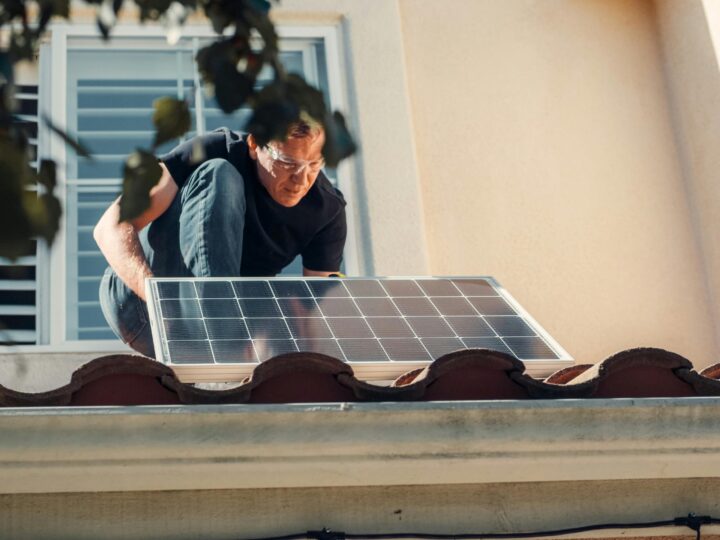The following contribution is from another author.
If you decide you want to install solar panels on your home’s roof, you’ll be in good company. Many individuals and families are deciding this is something that interests them. However, some are hesitant because they don’t know all that much about solar panels and their operation yet.
If you reach out to the best solar company in Florida, you can talk to them about getting some solar panels installed. You can discuss things like how many you need, how much the installation will cost, and what the routine maintenance of the panels will look like.
The question that many people ask when they are considering whether they want to install solar panels, though, is how long they will last. We will address that in this article, as well as some additional questions that homeowners want to know about this kind of technology.
How Do Solar Panels Function?
Let’s start by talking about how solar panels function. If you install solar panels, they can convert sunlight into electricity. They do this through a process that is called photovoltaic effect, sometimes abbreviated as PV.
As sunlight hits one of your roof’s panels, the cells absorb the photons. These photons transfer energy to electrons. This happens in the semiconductor material out of which the majority of the panel is composed.
The electrons are then dislodged from the semiconductor material’s atoms. This is what creates an electric charge that you can use.
The electric field that the cell creates in the solar panel makes the electrons flow through it. In essence, the material is creating an electrical current.
There’s also wiring in the panel, and it captures and harnesses the electricity that is flowing. You can then use it to power an electrical grid, your home, or both.
The last thing that usually happens with these setups is that an inverter converts the DC electricity that is generated by each panel. It turns it into alternating current, or AC.
Since this is the kind of electricity that you normally find in a wall socket, you can easily see how useful this conversion process should be to the typical homeowner who wants to use modern conveniences.
What is the Average Lifespan of One of These Panels?
As for how long one of these panels lasts, the short answer is about 25 years. They might even last as long as 30 in some cases.
Like most things you own, one major key to longevity and getting the most out of your purchase is maintenance. If you compare the length of time you get from a solar panel setup to other home appliances, you will find that this technology stacks up very well against them.
For instance, a boiler might last for 10-15 years, about half of what you can reasonably expect from some solar panels. You can say that early solar panels, which is to say ones that were created and installed before the year 2000, will degrade by about 1% every year. That’s not very much, but ones created and installed more recently will do even better.
More recent models are estimated to degrade about 0.4% per year. That’s very respectable in terms of trying to get plenty of use out of this purchase.
You should also know that solar panels are usually thought to reach their break even point, meaning the time when you have paid for the panels and they are starting to save you money on your energy consumption, after about 6-10 years.
That might seem like a long time, but what if you’re in your home for 20 or even 30 years, and you have no intention of moving? Installing panels and starting to see savings from them should occur long before you think of leaving that residence.
How Much Does It Cost to Install Them?
The typical cost to install solar panels can range from $15K-$50K. You have to remember that larger homes with more roof space will naturally cost more because they will accommodate more panels. A smaller home with a more modestly-sized roof will probably cost more like $20K-$25K.
That’s still a lot of money to many individuals and families. If you’re thinking about having panels installed, though, you might do so with the knowledge that you can pay for them over time. Most companies that will do the installation are more than happy to work with you on financing.
Also, you can often find incentive programs at the local, state, and federal levels. Since most politicians and local governments understand that this is clean, renewable energy, they are pleased to offer and sponsor programs that will give you a nice rebate if you want to move forward with an installation plan.
How Can You Ensure You’re Getting the Best Use Out of Them?
Once you’ve got your solar panels installed, you will probably want to make sure that you are getting the best use out of them. You should talk to the installer about that. Any company that does this should have plenty of literature that they can give you that will tell you everything you need to know about your new purchase.
You can also ask the installer any additional questions you might think of. If they’ve been on the job for a while, they have probably heard it all before and will have their responses ready.
However, you can get started cleaning your solar panels by going up on the roof once or twice a year and simply wiping them down with a clean rag. Ideally, you want to keep any dust, debris, snow, or anything else off of the panels. Presumably, you can’t go up on the roof all the time, but a couple of times a year is usually fine.
You can always get someone else to do it if you don’t trust your footing up there. Once you have your panels installed, you should feel that you’re being environmentally conscious, and that’s something that appeals to many homeowners.
















